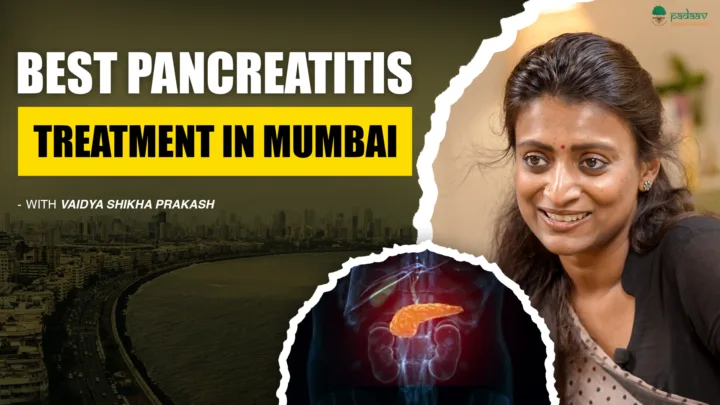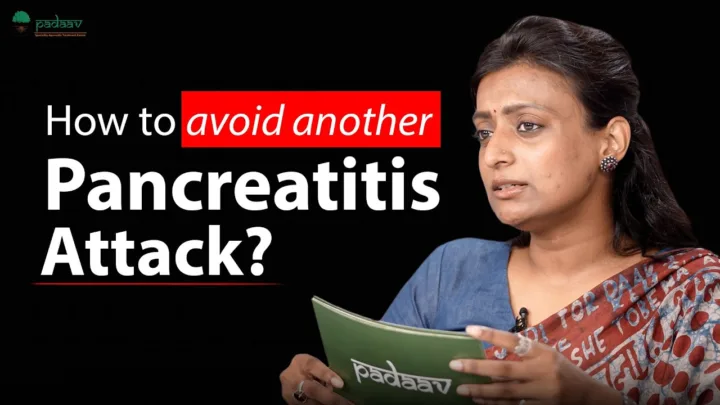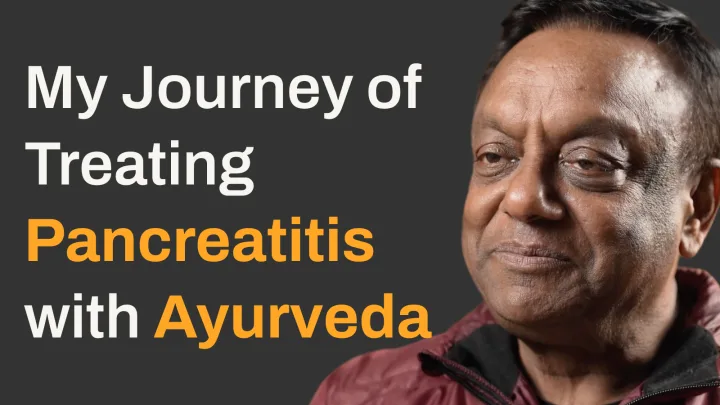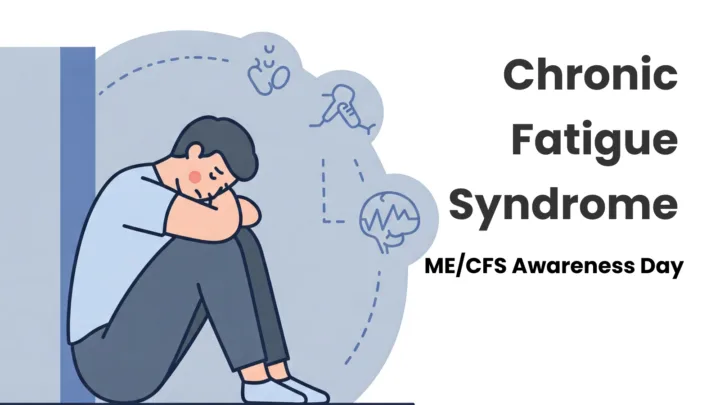Pancreatitis is a condition that only those who experience it can truly describe—a harrowing and excruciatingly painful ordeal. It is not only a serious condition but often misunderstood by many. In this blog, we’ll explore what pancreatitis is, its symptoms, causes, types, and how Ayurvedic wisdom can provide valuable insights into managing this condition.
What is Pancreatitis?
Pancreatitis refers to the inflammation of the pancreas, a small yet vital organ located behind the stomach. This organ plays a crucial role in digestion by breaking down carbohydrates, proteins, and fats. In medical terminology, the suffix “-itis” denotes inflammation; thus, pancreatitis signifies swelling of the pancreas. This inflammation can cause severe abdominal pain, often described as one of the most intense pains a person can endure.
Types of Pancreatitis
Acute Pancreatitis
Acute pancreatitis is a sudden onset of inflammation in the pancreas. It is often associated with:
- Severe abdominal pain that radiates to the back.
- Nausea and vomiting.
- Difficulty sitting or lying down comfortably.
- Symptoms such as bloating, back pain, and uncontrollable vomiting.
Acute pancreatitis can be self-limiting but, in some cases, may escalate into life-threatening conditions if left untreated.
Chronic Pancreatitis
Chronic pancreatitis is a long-term inflammation that gradually damages the pancreas over time. Key characteristics include:
- Persistent dull pain in the abdomen.
- Digestive issues like bloating and fatty stools.
- Weight loss and loss of appetite.
- Irreversible structural changes in the pancreas.
While acute pancreatitis can sometimes resolve with proper care, chronic pancreatitis often results in irreversible damage.
Causes of Pancreatitis
The causes of pancreatitis can be classified using the TIGAR-O framework:
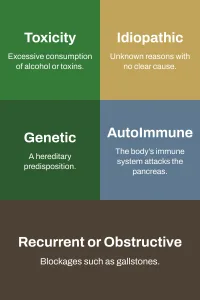
- Toxicity: Excessive consumption of alcohol or toxins.
- Idiopathic: Unknown reasons with no clear cause.
- Genetic: A hereditary predisposition.
- Autoimmune: The body’s immune system attacks the pancreas.
- Recurrent or Obstructive: Blockages such as gallstones.
Other potential causes include:
- Surgical trauma to the pancreas.
- Infections or injuries.
- Poor dietary habits leading to imbalanced nutrition.
Symptoms of Pancreatitis
Common symptoms vary based on whether the pancreatitis is acute or chronic.
Acute Pancreatitis Symptoms
- Intense abdominal pain.
- Nausea and vomiting.
- Pain radiating to the back.
- Inability to eat or digest food properly.
- Fever and elevated white blood cell count.
Chronic Pancreatitis Symptoms
- Persistent dull abdominal pain.
- Fatty stools.
- Unexplained weight loss.
- Loss of appetite and fatigue.
Risk Factors and Increasing Cases of Pancreatitis
Pancreatitis cases have risen alarmingly in recent years. In India, it has become increasingly common. Risk factors contributing to this rise include:
- Modern Lifestyle: Disrupted routines, lack of sleep, and poor dietary habits.
- Dietary Imbalances: Low protein intake and improper food combinations.
- Stress and Digital Overload: Excessive stress and lack of mindfulness in daily activities.
Additionally, young adults aged 18 to 24 often experience pancreatitis due to erratic schedules, poor nutrition, and lifestyle choices.
Ayurvedic Perspective on Pancreatitis
Ayurveda emphasizes the importance of maintaining a balanced lifestyle and dietary practices. According to Ayurveda:
- Mindful Eating: Food should be consumed in appropriate quantities and at the right times.
- Sleep Hygiene: Proper sleep patterns are crucial to prevent inflammation and maintain overall health.
- Holistic Living: A disciplined lifestyle with attention to diet, exercise, and rest helps prevent chronic conditions.
Managing Pancreatitis
Immediate Care
- Seek medical attention promptly if you experience symptoms of acute pancreatitis.
- Avoid foods that may trigger inflammation.
Long-Term Management
- Adopt a healthy diet with balanced nutrition.
- Avoid alcohol and smoking.
- Follow Ayurvedic principles to restore balance and improve digestion.
Diagnostic Tools
Modern diagnostic tools such as ultrasound, CT scans, and MRCPs are essential for identifying structural changes in the pancreas and diagnosing chronic pancreatitis.
Conclusion
Pancreatitis is a serious condition that requires awareness, management, and lifestyle modifications. Whether it’s acute or chronic, early diagnosis and intervention are key. Ayurvedic wisdom offers a holistic approach to managing this condition by focusing on balanced living, mindful eating, and proper rest.
If you or someone you know is dealing with pancreatitis, educate yourself about the condition and prioritize your health. Remember, prevention and care are the best ways to lead a healthy life.

